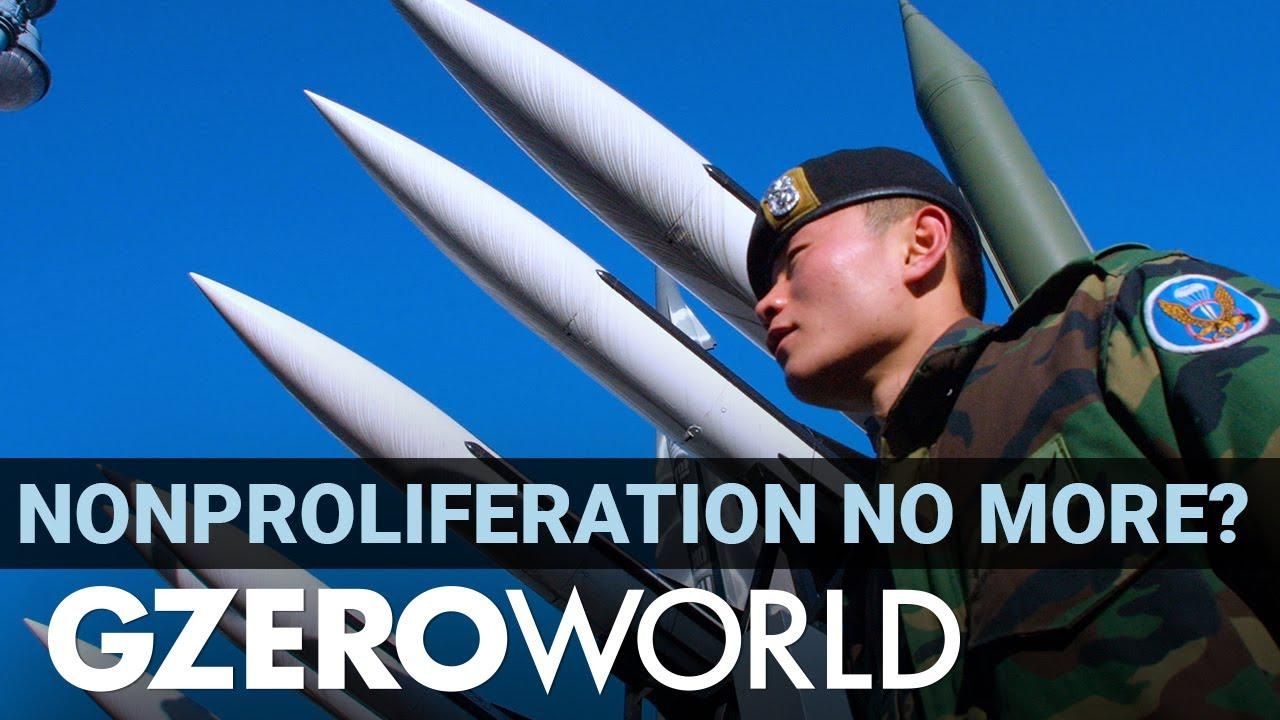GZERO World Clips
Nuclear nonproliferation has worked so far, but watch out for those questioning it — arms control expert

Nuclear Nonproliferation Has Worked So Far, But Watch Out for Those Questioning It | GZERO World

Nuclear nonproliferation treaties have been a success at stopping the atomic club from growing further by discouraging new membership, but nuclear weapons expert Kelsey Davenport says the slow pace of disarmament "is causing some states to begin to question that bargain." Although it's unlikely that nuke-curious countries will actually get the bomb because it costs too much time, money and resources, Davenport told Ian Bremmer on GZERO World that she believes that simply questioning the benefits of nonproliferation creates a real risk that must be "monitored and mitigated."
Watch the episode: Nuclear weapons: more dangerous than ever?
For many in Iran, it’s a waiting game for how long Ayatollah Khamenei has left to live.
In a 30-minute call on Thursday, President Donald Trump reportedly told Ukrainian President Volodymyr Zelensky he wants to end the war with Russia as soon as possible — aiming for a deal by summer, but ideally within weeks.
Former British ambassador to the U.S. Peter Mandelson leaves his residence after he was released following his arrest by London police on Monday on suspicion of misconduct in public office, following the release of U.S. Justice Department files linked to the late financier and convicted sex offender Jeffrey Epstein, in London, Britain, February 26, 2026.
The ghost of Jeffrey Epstein continues to haunt the world.
Think you know what's going on around the world? Here's your chance to prove it.